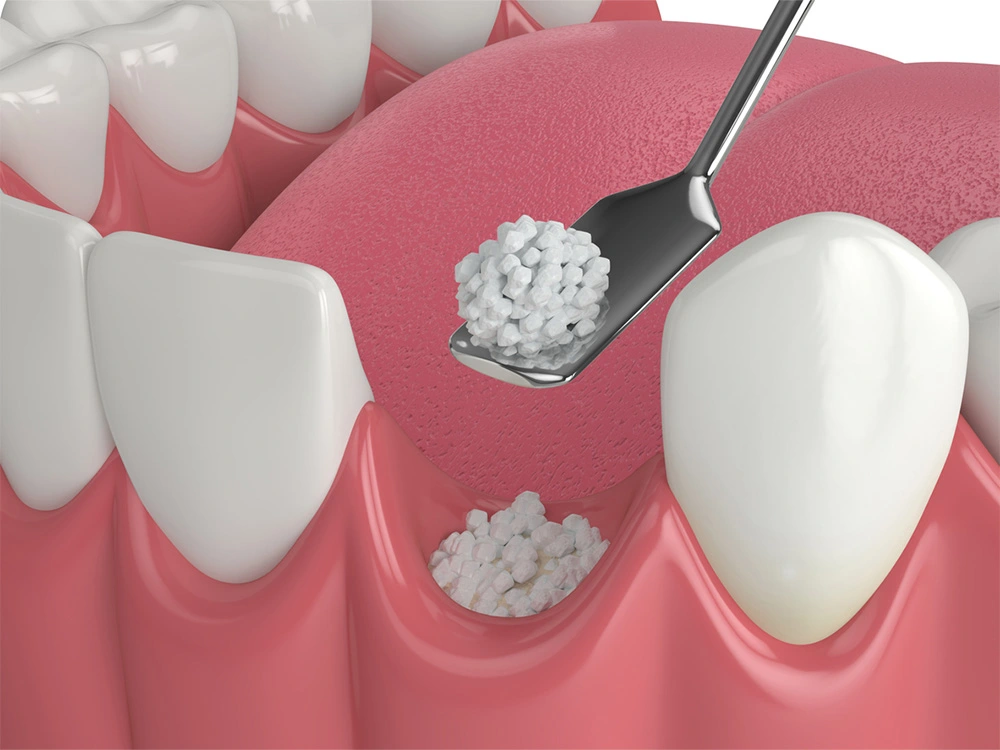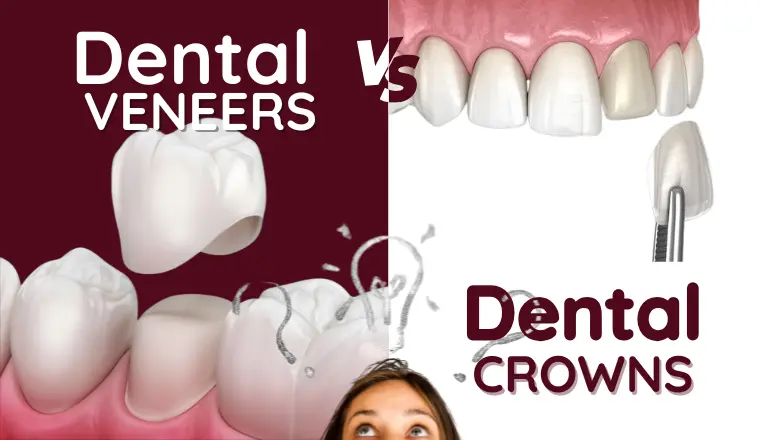
Everything You Need to Know About Dental Implants
Dental implants brought about a revolution in dentistry by offering a perennially serviceable, aesthetically pleasant method of tooth replacement. Unlike traditional dentures or bridges, they provide an extremely stable and permanent base for the artificial teeth that will appear like, feel like, and function like one's natural ones. In this comprehensive guide, we take you through everything you should know, from the basics to the procedure, benefits, risks, and aftercare of dental implants to make an informed decision about this transformative dental treatment.

What Are Dental Implants ? | in Turkey
Dental implant: A small titanium post surgically inserted into the jawbone below the gumline. This post is like an artificial root for a missing tooth and serves as a support for a replacement crown, bridge, or denture. This material is called biocompatible since it offends the tissue and may connect with bone through a process called osseointegration. This forms a solid and permanent anchor for the artificial tooth.

Types of Dental Implants:
- Endosteal Implants: The most common type, these implants are placed directly into the jawbone. They typically hold one or more prosthetic teeth.
- Subperiosteal Implants: These are placed under the gum but on or above the jawbone. They are used for patients who do not have enough healthy jawbone and cannot or do not want to undergo a bone augmentation procedure.
When Is a Dental Implant Needed?
Dental implants are typically recommended for individuals who have lost one or more teeth due to injury, decay, or periodontal disease. They are also an option for those who want to avoid the discomfort and maintenance associated with dentures or bridges.
Why choose dental implants?
Dental implants nowadays have taken first position among other alternatives for tooth replacement, since the motives for this are substantial, and among them are:
- Natural Appearance and Function:
Dental implants are designed to look and feel much like the natural teeth. They are tailor-made in shape, color, and size to perfectly fit among your residual teeth for a cohesive, natural look.
Unlike conventional dentures, which commonly slide or shift in the mouth while a person is eating or talking, dental implants are firmly and strongly anchored directly into the jawbone. The good anchorage guarantees stability and support that greatly amplifies the experience of chewing food or holding a conversation.
- Long Lasting and Durable:
It results in leading people to usually conclude that the long-term, when all goes well, is a more viable and cost-effective option; even though dental implants are long-lasting, provided one gives the right care and attention to them. In contrast, while the crowns placed on these implants may wear out and need replacement every 10 to 15 years, the implants themselves usually do not need replacement.
- Ensuring maintenance and protection of bone health:
In addition to the loss itself, inability to replace a lost tooth will allow the jawbone to progressively deteriorate from the lack of stimulation. The dental implant prevents this bone loss by mimicking the natural root of the tooth, thus stimulating the bone to maintain its density.
- Improved oral health:
One of the major differences with implants as a dental solution is that they do not involve preparing or altering the teeth next to them. Conventional bridges generally need to grind down some of the surrounding teeth in order to accommodate the actual bridge. That is to say, with implants, it would be possible to conserve the nearby teeth without damaging or rendering them useless.
- Enhanced Levels of Comfort and Ease:
Because dental implants are permanently fixed in the jawbone, patients do not need to take extra time to remove them for cleaning purposes as they would with dentures. In addition to increasing convenience, dental implants also greatly reduce the general discomfort associated with wearing removable dentures, including sore spots in the mouth and other potential problems some people might experience when trying to chew certain types of food.
How Can I Prepare for Dental Implant Surgery in Turkey?
Preparation for dental implant surgery involves several steps:
- Consultation and Examination: Your dentist will perform a thorough examination, including X-rays and possibly CT scans, to assess your oral health and bone structure.
- Treatment Plan: A customized treatment plan will be created, outlining the steps and timeline for the procedure.
- Pre-Surgery Instructions: Follow any pre-surgery instructions provided by your dentist, such as fasting before the procedure if general anesthesia will be used.
Is Dental Implant Surgery Painful?
The dental implant procedure is usually performed under local anesthesia, so you should not feel pain during the surgery. Some discomfort is normal after the procedure, which can be managed with over-the-counter pain relievers and prescribed medications if necessary.
What Happens During a Dental Implant Procedure?
- Implant Placement: The implant is surgically placed into the jawbone. The gum is then closed over the implant, allowing it to integrate with the bone over the next few months.
- Abutment Placement: Once the implant has fused with the bone, a small connector, called an abutment, is attached to the implant.
- Crown Placement: Finally, a custom-made crown is attached to the abutment, completing the restoration process.
The Dental Implant Procedure: Step by Step
Getting dental implants is a multi-step process that requires careful planning and precise execution. Here’s a detailed look at what you can expect during the procedure:
- Initial Consultation and Evaluation:
- During the first visit, the dentist will evaluate your oral health, discuss your goals, and determine whether you are a suitable candidate for dental implants. This assessment includes a thorough examination of your teeth and gums, as well as imaging studies such as X-rays or CT scans to evaluate the condition of your jawbone.
- Treatment Planning:
- If you are a candidate for dental implants, the dentist will develop a customized treatment plan. This plan outlines the number of implants needed, the type of implants, and the timeline for the procedure. If necessary, the plan may also include preparatory treatments, such as bone grafting or sinus lifts.
- Preparatory Procedures:
- Bone Grafting: If your jawbone lacks sufficient density or volume to support an implant, a bone graft may be necessary. This involves adding bone material to the jawbone to strengthen it. The grafted bone can come from your own body, a donor, or synthetic materials. After grafting, the area needs to heal for several months before the implant can be placed.
- Sinus Lift: In cases where the upper jawbone is too thin to accommodate an implant, a sinus lift may be performed. This procedure involves lifting the sinus membrane and adding bone material to the area to provide enough support for the implant.
- Implant Placement Surgery:
- Once the jawbone is ready, the implant placement surgery is scheduled. This procedure is typically performed under local anesthesia, but sedation or general anesthesia can be used for patients with anxiety or complex cases.
- The dentist makes a small incision in the gum to expose the jawbone, drills a hole into the bone, and inserts the titanium implant post. The gum is then stitched back in place, and the implant is left to heal and integrate with the bone for a period of 3 to 6 months.
- Osseointegration:
- During the healing period, the process of osseointegration occurs, where the implant fuses with the jawbone. This is a critical step, as it ensures the stability and durability of the implant. The success of the implant depends largely on the success of this process.
- Abutment Placement:
- After osseointegration is complete, a second minor surgery is performed to attach an abutment to the implant. The abutment is a connector that holds the crown or other prosthetic in place. The gum tissue is allowed to heal around the abutment for a couple of weeks.
- Crown Placement:
- Finally, a custom-made crown, bridge, or denture is attached to the abutment. The crown is designed to match the color, size, and shape of your natural teeth, providing a seamless and natural look.
- Follow-Up and Aftercare:
- Regular follow-up visits are essential to ensure the implant is functioning properly and to monitor oral health. Good oral hygiene practices, including brushing, flossing, and routine dental check-ups, are crucial for the long-term success of the implant.
.jpg)
What Can You Expect After a Dental Implant?
After the procedure, you may experience some swelling, bruising, and minor bleeding, which are normal and should subside within a few days. Follow your dentist's post-operative care instructions, including proper oral hygiene and any dietary recommendations.
How Long Does a Dental Implant Procedure Take?
The entire process can take several months from start to finish. The initial surgery to place the implant can take 1-2 hours per implant. After placement, a healing period of 3-6 months is typically needed for the implant to integrate with the jawbone before the abutment and crown can be placed.
How Successful Are Dental Implants?
Dental implants have a success rate of about 95-98%, making them one of the most reliable options for tooth replacement. Factors such as proper oral hygiene, overall health, and the skill of the dental professional play a significant role in the success of the implants.
How Long Do Dental Implants Last?
With proper care and maintenance, dental implants can last a lifetime. Regular dental check-ups and good oral hygiene practices are essential to ensuring the longevity of your implants.
Do Dental Implants Get Cavities?
No, dental implants do not get cavities. However, the surrounding gum tissue and natural teeth are still susceptible to periodontal disease and other dental issues, so maintaining good oral hygiene is crucial.
How Much Does It Cost for Dental Implants? | Affordable Dental Implants
The cost of dental implants can vary widely depending on factors such as the number of implants needed, the type of restoration, and the geographical location. On average, The cost of dental implants in Turkey typically ranges between $350 and $850, depending primarily on the type of implant used and its country of origin.
Final Thoughts about Implant Dentistry in Istanbul
Dental implants are a highly effective solution for replacing missing teeth, offering numerous benefits for both your oral health and overall well-being. They provide a natural look and feel, improve your ability to eat and speak, and help maintain the structure of your jawbone. If you're considering dental implants, consult with a qualified dental professional to discuss your options and develop a personalized treatment plan.
At Dose Group, we specialize in providing top-quality dental care in a luxurious setting. Our experienced professionals use the latest technology to ensure the best possible outcomes for our patients. Schedule a consultation with us today to learn more about how we can help you achieve the smile of your dreams.
References
- Duong, H. Y., Roccuzzo, A., Stähli, A., Salvi, G. E., Lang, N. P., & Sculean, A. (2022). Oral health‐related quality of life of patients rehabilitated with fixed and removable implant‐supported dental prostheses. Periodontology 2000, 88(1), 201-237.
- Huang, L. S., Huang, Y. C., Yuan, C., Ding, S. J., & Yan, M. (2023). Biomechanical evaluation of bridge span with three implant abutment designs and two connectors for tooth-implant supported prosthesis: A finite element analysis. Journal of Dental Sciences, 18(1), 248-263.
- Fiorillo, L., Cicciu, M., Tozum, T. F., Saccucci, M., Orlando, C., Romano, G. L., ... & Cervino, G. (2022). Endosseous dental implant materials and clinical outcomes of different alloys: A systematic review. Materials, 15(5), 1979.
Related Articles
FAQ
- What is the success rate of dental implants?
Dental implants have a success rate of 95-98%, making them one of the most reliable treatments for replacing missing teeth when performed by experienced professionals.
- How long do dental implants last?
With proper care, dental implants can last a lifetime. Regular dental check-ups and good oral hygiene are essential.
- Are dental implants painful?
The procedure itself is usually pain-free, as local anesthesia is used. Post-surgery, patients may experience mild discomfort, manageable with pain medication.
- Can anyone get dental implants?
Most people are eligible, but those with certain health conditions or insufficient jawbone may need additional procedures to qualify.
- How much do dental implants cost in Turkey?
The cost varies depending on the number of implants and complexity, but Turkey offers competitive pricing, often more affordable than in the U.S. or Europe.













.png)










.png)



